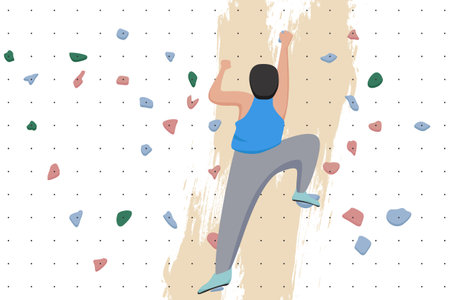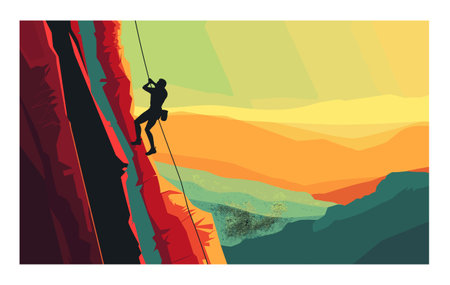1. Origins of Hiker Slang in the U.S.
Hiker slang in the United States has deep roots, shaped by the country’s diverse landscapes and unique outdoor traditions. This language didn’t just pop up overnight—it grew alongside America’s love for adventure and exploration. Early hikers, trappers, and settlers needed quick ways to communicate on long journeys through forests, mountains, and deserts. Over time, these practical terms evolved into the rich trail vocabulary used today.
How Trail Language Began
Back in the 1800s, as Americans started exploring wilderness areas for fun instead of survival, a new culture was born. Groups like the Appalachian Mountain Club (founded in 1876) helped popularize hiking as a social activity. As more people hit the trails, they came up with nicknames for gear, places, and trail experiences—often inspired by regional quirks or inside jokes only hikers would understand.
Early Influences on Hiker Slang
| Influence | Description | Example Terms |
|---|---|---|
| Pioneer & Trapper Jargon | Early explorers used shorthand to describe landmarks and dangers. | “Blaze” (trail marker), “Ford” (river crossing) |
| Regional Dialects | Local accents and sayings mixed into trail talk. | “Cairn” (rock pile marker in New England), “Holler” (valley in Appalachia) |
| Military Terms | WWII veterans brought army slang to civilian hiking after the war. | “Recon” (scouting ahead), “Ration” (food supply) |
| Outdoor Clubs & Guides | Organizations helped standardize trail terms but also sparked new lingo. | “Zero day” (rest day), “Trail angel” (helpful stranger) |
Regional Flavor Across America
The U.S. is home to many famous trails—from the Appalachian Trail in the East to the Pacific Crest Trail out West. Each region added its own flavor to hiker slang. For example, Appalachian hikers might talk about “switchbacks” or “balms,” while Western hikers use words like “desert section” or “snow chute.” These differences help connect people to their local landscapes and make every trail community feel special.
The Role of Shared Experience
No matter where you hike, shared experiences shape how people talk on the trail. Whether it’s inventing nicknames for tough climbs (“heartbreak hill”) or describing bad weather (“trail magic rain”), this evolving language brings hikers together and helps them feel like part of a bigger family.
2. Key Terms and Their Meanings
Understanding Hiker Slang on American Trails
When you hit the trails in the United States, you’ll quickly notice that hikers have a language all their own. This unique slang helps foster a sense of community and makes communication faster and more fun. Let’s break down some of the most popular terms you’ll hear along America’s long-distance hiking routes.
Common Hiker Slang and What They Mean
| Term | Meaning | Context/Example |
|---|---|---|
| NOBO / SOBO | Northbound (NOBO) or Southbound (SOBO) hiker direction on a trail. | “I’m going NOBO on the Appalachian Trail this year.” |
| Trail Magic | Unexpected acts of kindness—like snacks or drinks—left by strangers for hikers. | “We found trail magic at the next road crossing!” |
| Zero Day | A day when a hiker covers zero miles, usually to rest and recover. | “After five days of hiking, I needed a zero day in town.” |
| Nero Day | A “nearly zero” mile day, with very little hiking done. | “We took a nero into town to resupply.” |
| Hiker Trash | A term of endearment for thru-hikers who fully embrace the rugged trail lifestyle. | “We’re just proud hiker trash enjoying the journey.” |
| Trail Name | A nickname adopted or given during a long hike, often based on personality or an event. | “My trail name is ‘Sunshine’ because I’m always optimistic.” |
| PUDs | Pointless Ups and Downs—refers to unnecessary elevation changes along a trail. | “Today’s section was full of PUDs; my legs are shot!” |
| LNT | Leave No Trace—the ethic of minimizing environmental impact on the trail. | “Remember to practice LNT when camping tonight.” |
| Yellow Blazing | Taking a ride (e.g., hitchhiking) instead of walking part of the trail—named after yellow road lines. | “He yellow blazed past that tough section.” |
| Purple Blazing | Diversion from the main trail to visit a romantic interest, named after purple as a blend of red (love) and blue (blazing). | “She went purple blazing last weekend.” |
Why These Terms Matter on the Trail
This lingo isn’t just about sounding cool; it creates bonds among hikers and helps everyone understand each other’s experiences. Whether you’re planning your first big trek or just want to feel like part of the crew, knowing these key terms will help you connect with fellow adventurers and enjoy every step on America’s iconic trails.

3. The Role of Thru-Hiking in Shaping Vocabulary
Thru-hiking has played a huge part in the way hiker slang has developed across the United States. When people take on long-distance trails like the Appalachian Trail (AT) and Pacific Crest Trail (PCT), they don’t just cover thousands of miles—they also build a unique community with its own language. As hikers spend months together, new terms pop up, spread quickly, and become part of trail culture from coast to coast.
How Thru-Hikes Spark New Lingo
On trails like the AT and PCT, hikers face challenges that most folks can hardly imagine—blisters, “trail magic,” epic rainstorms, and endless peanut butter wraps. To talk about these shared experiences, hikers invent words or give new meanings to old ones. For example, “zero day” means a day spent resting with zero miles hiked, while “trail angel” refers to someone who helps hikers with rides, food, or encouragement.
Trail-Specific Terms That Went Nationwide
| Term | Description | Origin Trail |
|---|---|---|
| Nobo/Sobo | Northbound/Southbound hiker directions | Appalachian Trail |
| Hiker Trash | A badge of honor for scruffy, dedicated thru-hikers | PCT & AT |
| Trail Magic | Unexpected acts of kindness on the trail | PCT & AT |
| Zero/Nero Day | No miles or nearly no miles hiked in one day | PCT & AT |
| LASHer | Long-Ass Section Hiker (not doing the full trail at once) | PCT & AT |
| Flip-Flop | A hiker who completes non-continuous sections to avoid crowds or weather | Appalachian Trail |
| PUDs (“Pointless Ups and Downs”) | Tough trail sections with little reward in views or progress | Appalachian Trail |
| Cowboy Camping | Sleeping outside without a tent—just under the stars! | PCT & Western Trails |
| Bounce Box | A package mailed ahead containing resupply items you don’t need right away | PCT & AT |
The Spread of Slang Beyond the Big Trails
The unique vocabulary born on America’s major thru-hikes doesn’t stay on those trails for long. As hikers finish their journeys, they bring their favorite words back home and share them online or at local hiking clubs. Social media groups and blogs have helped these terms reach even weekend warriors and casual day-hikers. In many ways, hiking slang now connects everyone who loves spending time on U.S. trails—no matter how far they walk.
4. Community & Belonging Through Shared Language
One of the most fascinating aspects of hiker slang in the U.S. is how it helps to build a strong sense of community and belonging on the trail. When hikers meet each other and use words like “zero day,” “trail magic,” or “NOBO” (northbound), theyre speaking a language that instantly connects them, even if theyve never met before.
Creating Instant Connections
Shared slang acts like a secret handshake for hikers. It lets people know they belong to the same group, and it often breaks the ice when strangers meet on the trail. For example, when someone says they’re taking a “nero” (nearly zero miles), others understand immediately—they’ve probably done the same thing themselves. This shared understanding builds trust quickly and makes everyone feel welcome.
Fostering Trail Identity
Hikers in the U.S. often adopt nicknames known as “trail names,” which are part of the unique culture surrounding long-distance hiking. These names are usually given based on funny incidents or personal traits, and once you have one, you’re truly part of the community. Saying your trail name out loud is like announcing you belong.
Common Hiker Slang & Their Meanings
| Term | Meaning |
|---|---|
| Zero Day | A day spent in town with no hiking miles covered |
| Nero | A day with nearly zero miles hiked |
| Trail Magic | Unexpected acts of kindness from strangers, like food or rides |
| NOBO/SOBO | Northbound/Southbound hiker (direction on major trails) |
| PUDs | Pointless Ups and Downs—refers to tough sections with little reward |
| Tramily | Your “trail family”—the group you hike with or bond with on the trail |
The Feeling of Belonging
When hikers hear familiar slang on the trail, it’s more than just words—it’s proof that they’re part of something bigger. Whether swapping stories at a shelter or sharing snacks at a scenic overlook, this language strengthens friendships and brings people together from all walks of life. In short, hiker slang isn’t just fun; it’s an essential ingredient in creating the supportive, inclusive trail community found across America’s wild places.
5. The Future of Trail Language
Emerging Trends in Hiker Slang
As outdoor culture continues to grow in popularity across the United States, hiker slang is also evolving. Younger hikers are joining the trails, bringing new energy and fresh phrases. At the same time, long-time hikers keep classic slang alive, creating a blend of old and new language on America’s trails. Trail names, for example, are getting more creative as people look for unique ways to express their trail personalities. Words like “tramily” (trail family) have become common, showing how much hikers value community. Hikers also invent funny or practical nicknames for gear and food based on shared experiences.
Digital Influences: Social Media and Apps
The rise of technology has transformed how hikers communicate and share language. Social media platforms like Instagram, TikTok, and hiking forums allow slang to spread quickly beyond any single trail or region. Hikers use hashtags such as #HikerTrash or #ZeroDay to connect with others and build a sense of belonging even before meeting in person. Mobile apps for navigation or trip planning often include chat features where new terms can emerge and gain popularity fast.
Examples of Digital Trail Slang
| Slang Term | Meaning | Where Its Popular |
|---|---|---|
| LNT | Leave No Trace (environmental ethic) | All U.S. trails, social media posts |
| Zero Day | A rest day with no hiking miles | PCT, AT, online communities |
| Nero Day | A day with very few hiking miles (“nearly zero”) | PCT, AT, vlogs and blogs |
| Trail Magic | Unexpected acts of kindness on the trail | AT, PCT, Facebook groups |
| NoBo/SoBo | Northbound/Southbound hiker directions | PCT, AT, GPS tracking apps |
The Possible Direction of Hiker Slang
Looking ahead, hiker slang will likely keep changing as outdoor culture becomes more diverse and connected. Regional differences may fade as digital communication spreads popular terms nationwide. However, some local sayings could still remain special to certain areas or communities. Environmental awareness will probably add new words focused on sustainability and conservation. As more people from different backgrounds hit the trails, expect to hear slang that reflects a wider range of cultures and experiences.


